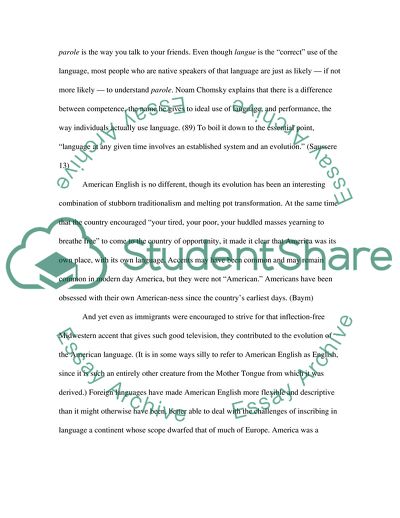Cite this document
(Accents in America: A Structuralist Examination of Foreign Language in Article, n.d.)
Accents in America: A Structuralist Examination of Foreign Language in Article. https://studentshare.org/english/1717168-accents-in-america-the-unity-of-cultures
Accents in America: A Structuralist Examination of Foreign Language in Article. https://studentshare.org/english/1717168-accents-in-america-the-unity-of-cultures
(Accents in America: A Structuralist Examination of Foreign Language in Article)
Accents in America: A Structuralist Examination of Foreign Language in Article. https://studentshare.org/english/1717168-accents-in-america-the-unity-of-cultures.
Accents in America: A Structuralist Examination of Foreign Language in Article. https://studentshare.org/english/1717168-accents-in-america-the-unity-of-cultures.
“Accents in America: A Structuralist Examination of Foreign Language in Article”. https://studentshare.org/english/1717168-accents-in-america-the-unity-of-cultures.


